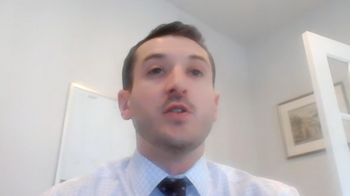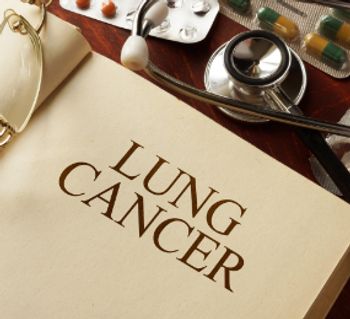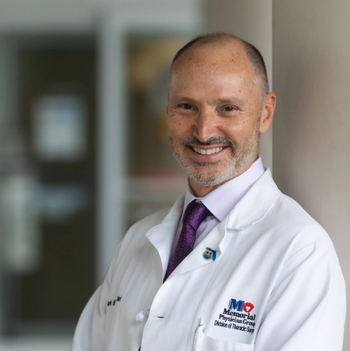
An expert explained what ROS1-positive non-small cell lung cancer is and why it is important to identify mutations like ROS1 through genetic sequencing.

An expert explained what ROS1-positive non-small cell lung cancer is and why it is important to identify mutations like ROS1 through genetic sequencing.

The recent FDA approval of the next-generation tyrosine kinase inhibitor Augtyro provides patients with locally advanced or metastatic ROS1-positive non-small cell lung cancer another treatment option when the disease becomes resistant to other therapies.

Out of the darkness there is sometimes light, and in South Florida, Dr. Mark Block is a beacon of hope and light for many patients who’ve recently received a diagnosis of cancer.

On this episode of the “Cancer Horizons” podcast, a young mother living with lung cancer shares the story of her cancer diagnosis and describes the once-in-a-lifetime coincidence of learning her neighbor has the same cancer type and mutation.

The majority of Americans lack understanding of lung cancer’s deadly threat and how it can be screened for, according to new survey data from the American Lung Association. One survivor and one patient stress the importance of learning more about the deadliness of the disease.

After Kelsey Ahmed’s mother, Martha, was diagnosed with stage 4 non-small cell lung cancer, Kelsey and her family got to work raising funds and spreading awareness for the American Lung Association.

Here’s what patients should know about the recent FDA approval of Exkivity, the first oral therapy for patients with non-small cell lung cancer who have EFGR exon 20 insertion mutations.

A colleague nominates Jody Ruth Steinhardt for the Lung Cancer Heroes® award for her commitment to changing the world for patients with lung cancer.






CURE® spoke with Dr. David Cooke, on behalf of the American Lung Association, on addressing racial disparities in lung cancer screening and care.

Overwhelming evidence shows that particle pollution in the outdoor air we breathe — like that coming from vehicle exhaust, coal-fired power plants and other industrial sources — can cause lung cancer.